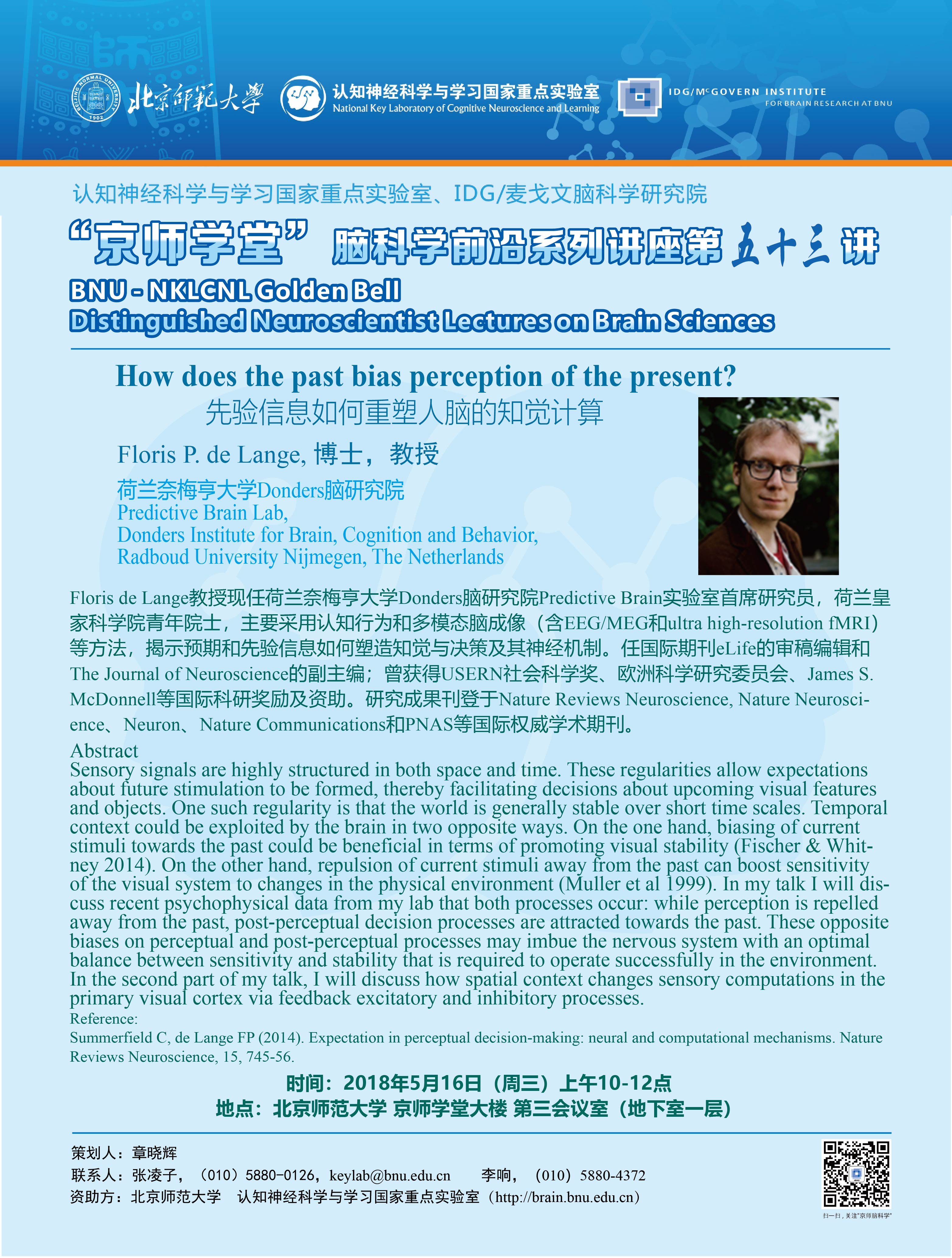先验信息如何重塑人脑的知觉计算
How does the past bias perception of the present?
Floris P. de Lange, 博士,教授
荷兰奈梅亨大学Donders脑研究院
Donders Institute for Brain, Cognition and Behavior,
Radboud University Nijmegen, The Netherlands
报告人简介:
Floris de Lange教授现任荷兰奈梅亨大学Donders脑研究院Predictive Brain实验室首席研究员,荷兰皇家科学院青年院士,主要采用认知行为和多模态脑成像(含EEG/MEG和ultra high-resolution fMRI)等方法,揭示预期和先验信息如何塑造知觉与决策及其神经机制。任国际期刊eLife的审稿编辑和The Journal of Neuroscience的副主编;曾获得USERN社会科学奖、欧洲科学研究委员会、James S. McDonnell等国际科研奖励及资助。研究成果刊登于Nature Reviews Neuroscience, Nature Neuroscience、Neuron、Nature Communications和PNAS等国际权威学术期刊。
Abstract
Sensory signals are highly structured in both space and time. These regularities allow expectations about future stimulation to be formed, thereby facilitating decisions about upcoming visual features and objects. One such regularity is that the world is generally stable over short time scales. Temporal context could be exploited by the brain in two opposite ways. On the one hand, biasing of current stimuli towards the past could be beneficial in terms of promoting visual stability (Fischer & Whitney 2014). On the other hand, repulsion of current stimuli away from the past can boost sensitivity of the visual system to changes in the physical environment (Muller et al 1999). In my talk I will discuss recent psychophysical data from my lab that both processes occur: while perception is repelled away from the past, post-perceptual decision processes are attracted towards the past. These opposite biases on perceptual and post-perceptual processes may imbue the nervous system with an optimal balance between sensitivity and stability that is required to operate successfully in the environment. In the second part of my talk, I will discuss how spatial context changes sensory computations in the primary visual cortex via feedback excitatory and inhibitory processes.
Reference:
Summerfield C, de Lange FP (2014). Expectation in perceptual decision-making: neural and computational mechanisms. Nature Reviews Neuroscience, 15, 745-56.
邀请人:秦绍正 教授
时间:2018年5月16日 (周三)上午10-12点
地点:北京师范大学京师学堂大楼第三会议室(地下室一层)
